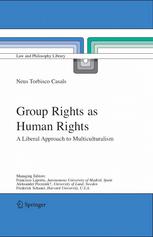

Most ebook files are in PDF format, so you can easily read them using various software such as Foxit Reader or directly on the Google Chrome browser.
Some ebook files are released by publishers in other formats such as .awz, .mobi, .epub, .fb2, etc. You may need to install specific software to read these formats on mobile/PC, such as Calibre.
Please read the tutorial at this link: https://ebookbell.com/faq
We offer FREE conversion to the popular formats you request; however, this may take some time. Therefore, right after payment, please email us, and we will try to provide the service as quickly as possible.
For some exceptional file formats or broken links (if any), please refrain from opening any disputes. Instead, email us first, and we will try to assist within a maximum of 6 hours.
EbookBell Team

4.1
10 reviewsLiberal theories have long insisted that cultural diversity in democratic societies can be accommodated through classical liberal tools, in particular through individual rights, and they have often rejected the claims of cultural minorities for group rights as illiberal. Group Rights as Human Rights argues that such a rejection is misguided. Based on a thorough analysis of the concept of group rights, it proposes to overcome the dominant dichotomy between "individual" human rights and "collective" group rights by recognizing that group rights also serve individual interests. It also challenges the claim that group rights, so understood, conflict with the liberal principle of neutrality; on the contrary, these rights help realize the neutrality ideal as they counter cultural biases that exist in Western states. Group rights deserve to be classified as human rights because they respond to fundamental, and morally important, human interests. Reading the theories of Will Kymlicka and Charles Taylor as complementary rather than opposed, Group Rights as Human Rights sees group rights as anchored both in the value of cultural belonging for the development of individual autonomy and in each person’s need for a recognition of her identity. This double foundation has important consequences for the scope of group rights: it highlights their potential not only in dealing with national minorities but also with immigrant groups; and it allows to determine how far such rights should also benefit illiberal groups. Participation, not intervention, should here be the guiding principle if group rights are to realize the liberal promise.